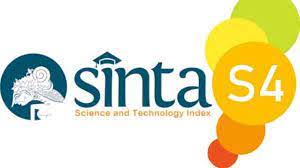METODOLOGI MEMAHAMI HADIS
Abstract
Perkembangan ilmu pengetahuan dari masa ke masa memberikan sumbangsih munculnya metode maupun pendekatan baru untuk memahami hadis, karena hadis merupakan salah satu sumber pokok hukum Islam kedua setelah Al-Qur’an tak kan lepas dari kajian maupun penelitian. Dalam metode pemahaman (syarh) hadis, para ulama menggunakan 3 metode, yaitu metode tahlili (analitis), metode ijmali (global), dan metode muqarin (perbandingan). Ibarat gading tak retak, ketiga metode itu mempunyai kelebihan maupun kelemahan masing-masing.
References
Agil Husain Munawwar, Said dan Mustaqim, Abdul. 2001. Asbabul Wurud. Yogyakarta: Pustaka Pelajar.
Ali, Nizar. 2001. Memahami Hadis Nabi (Metode dan Pendekatan). Yogyakarta: Center for Educational Studies and Development (CESaD) YPI Al-Rahmah.
________. 2007. (Ringkasan Desertasi) Kontribusi Imam Nawawi dalam Penulisan Syarh Hadis. Yogyakarta.
Baidan, Nashrudin. 2000. Metodologi Penafsiran Al-Qur’an. Yogyakarta: Pustaka Pelajar.
al-Din Abu Muhammad Mahmud bin Ahmad al-’Aini, Badr. 1972. Syarh muqarin adalah Umdah al-Qari Syarh Sahih al-Bukhari,. Aleppo: Mustafa al-babi al-Halabi.
al-Hay al-Farmawi, Abd. 1997. Al-Bidayah fi al-Tafsir al-Maudu’i. ,t.tp: Matba’ah al-Hadarah al-‘Arabiyyah.
Hasan, Fuad dan Koentjaraningrat. 1997. Beberapa Asas Metodologi Ilmiah, dalam Koentjaraningrat (ed.), Metode-metode Penelitian Masyarakat. Jakarta: Gramedia.
Tim Penyusun Kamus Pusat Bahasa KBBI. 2005. Kamus Besar Bahasa Indonesia. jakarta: Balai Pustaka. Cetakan ketiga, edisi III.
Yunus, Mahmud. 1973. Kamus Arab-Indonesia. Jakarta: Yayasan Penyelenggara Penterjemah Penafsir Al-Qur’an.
al-Qardhawi, Yusuf. 1993. Bagaimana Memahami Hadis Nabi saw. edisi terjemahan Bandung: Kharisma.
Copyright (c) 2020 Benny Kurniawan ,

This work is licensed under a Creative Commons Attribution-ShareAlike 4.0 International License.
This journal provides immediate open access to its content on the principle that making research freely available to the public supports a greater global exchange of knowledge.

Komunika by http://ejournal.iainu-kebumen.ac.id/index.php/An-Nidzam/ is licensed under a Creative Commons Attribution-ShareAlike 4.0 International License
Authors who publish with this journal agree to the following terms:
- Authors retain copyright and grant the journal right of first publication with the work simultaneously licensed under a Creative Commons Attribution License that allows others to share the work with an acknowledgement of the work's authorship and initial publication in this journal.
- Authors are able to enter into separate, additional contractual arrangements for the non-exclusive distribution of the journal's published version of the work (e.g., post it to an institutional repository or publish it in a book), with an acknowledgement of its initial publication in this journal.
- Authors are permitted and encouraged to post their work online (e.g., in institutional repositories or on their website) prior to and during the submission process, as it can lead to productive exchanges, as well as earlier and greater citation of published work (See The Effect of Open Access).










1.png)


